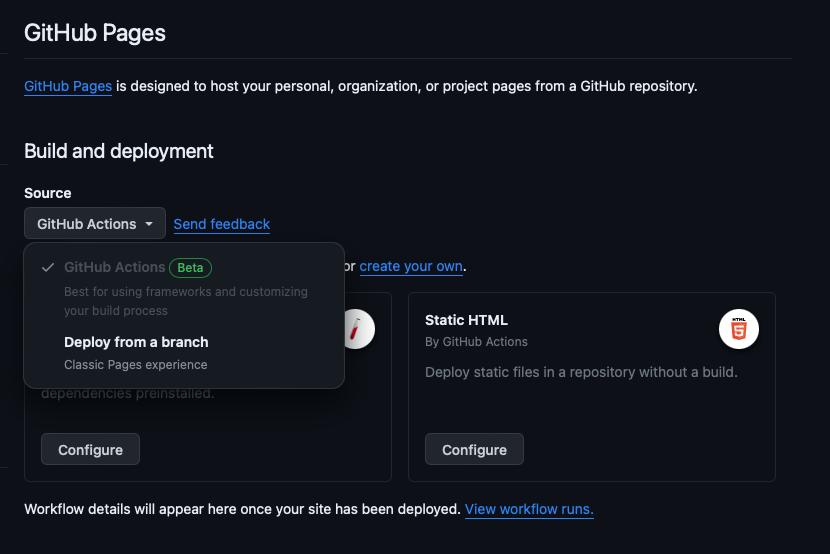GitHub Pages
One of the easiest ways to deploy your site is to use GitHub Pages. Github pages will take care of the hosting for you and it's free. Doco will generate a static website that can be hosted on GitHub Pages, then you can use a custom domain to point to your GitHub Pages site.
⚠️ This guide assumes you have a github repository already. If you don't, you can create one by following the GitHub guide.
Enabling GitHub Pages #
To enable GitHub Pages, go to your repository settings and scroll down to the GitHub Pages section. Click on the Sources dropdown and select github actions as the source.

Once you've selected github actions as the source we will need to create a workflow file. To do this we will modify the source adding a .github/workflows/gh-pages.yml file to your repository.
name: Pages
on:
push:
branches:
- main
permissions:
contents: read
pages: write
id-token: write
concurrency:
group: "pages"
cancel-in-progress: false
jobs:
Build:
name: build docs
runs-on: ubuntu-latest
environment:
name: github-pages
url: ${{ steps.deployment.outputs.page_url }}
steps:
- uses: actions/checkout@v2
- name: Setup Doco
run: >
wget https://github.com/paganotoni/doco/releases/latest/download/doco_Linux_x86_64.tar.gz &&
tar -xvf doco_Linux_x86_64.tar.gz
- run: ./doco build
- name: Upload artifact
uses: actions/upload-pages-artifact@v3
with:
path: 'public'
- name: Deploy to GitHub Pages
id: deployment
uses: actions/deploy-pages@v4
This will trigger a build every time you push to the main branch. If you want to trigger a build on a different branch you can change the branches section of the on property. After you've added the file, commit it to your repository and github will take care of deploying it.
